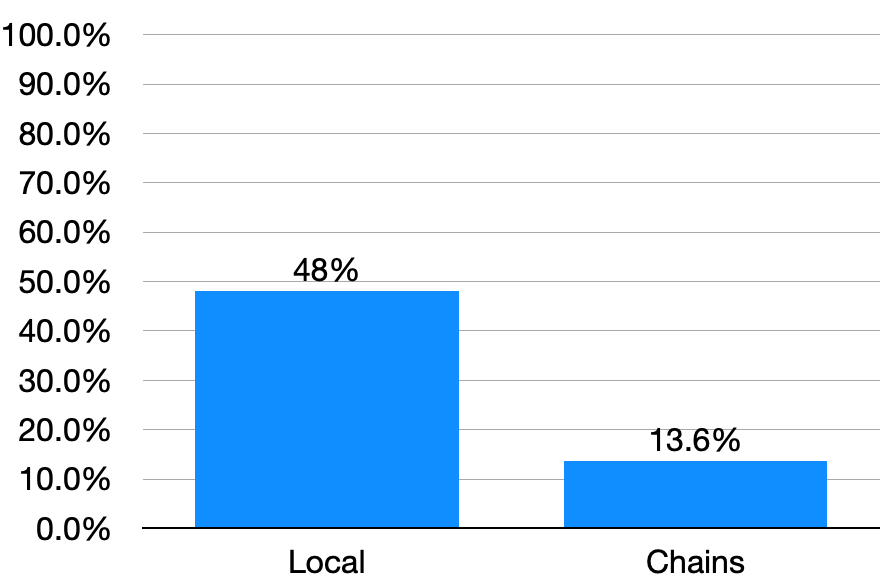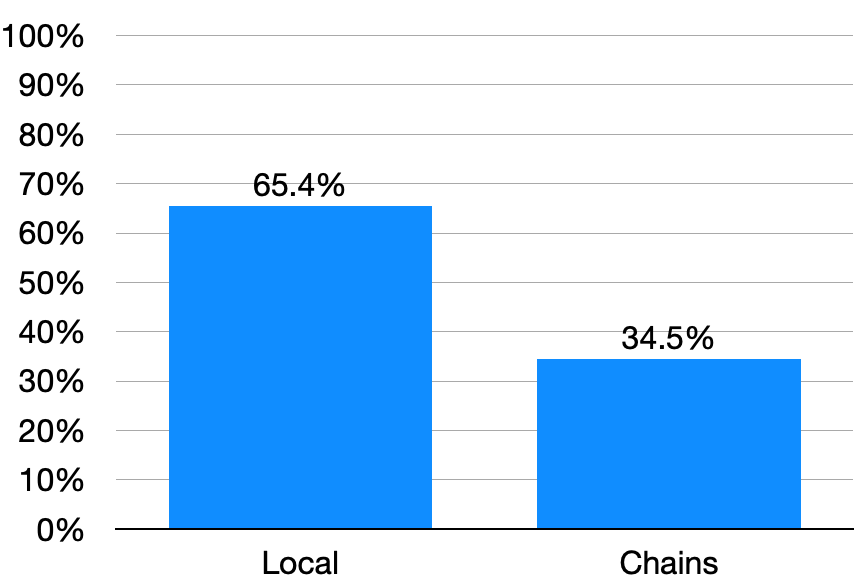The Local Multiplier Affect: Shopping and Eating at Locally Owned Businesses is Good for Lexington
The Local Multiplier Affect: Shopping and Eating at Locally Owned Businesses is Good for Lexington
Shopping and eating locally provides a benefit to our community — a local multiplier affect — that is lost when you shop and eat with the big guys — the national chains, big box stores, and online retailers.
Multiple studies conducted by two organizations, Civic Economics, and The Institute for Local Self Reliance, have shown that going local recirculates a larger percentage of each purchase in the local economy than when you make the same purchase with the big guys.
When you go local for retail, almost 50% of the purchase price is recirculated in the local economy, while less than 15% is recirculated when you make the same purchase with the big guys. For restaurants, going local recirculates more than 65% of your purchase in the local economy, while the same purchase at a national chain restaurant recirculates less than 35%.
Percent of Revenue Reinvested in the Local Economy
Percent of Revenue Reinvested in the Local Economy
Retail: Local & Chains

Restaurants: Local & Chains

In addition to this local multiplier effect, there are other indirect benefits to local communities that come from patronizing these businesses:
- Locally owned businesses employ more people per-unit of sales, and retain more employees during economic downturns. National chains and big box stores decrease the number of retail jobs in a region.
- Locally owned businesses are linked to higher income growth and lower levels of poverty.
- A community’s social capital, civic engagement, and well-being is positively related to the share of its economy held by local businesses.
- Communities that preserve their one-of-a-kind businesses and distinctive character have an economic advantage over chains and online retailers that determine product selection at the national level.
- Locally owned businesses help to build strong communities by sustaining vibrant town centers, linking neighbors in a web of economic and social relationships, and contributing to local causes.
